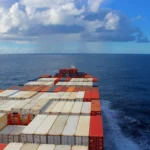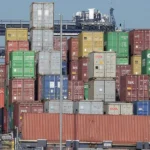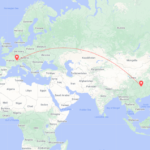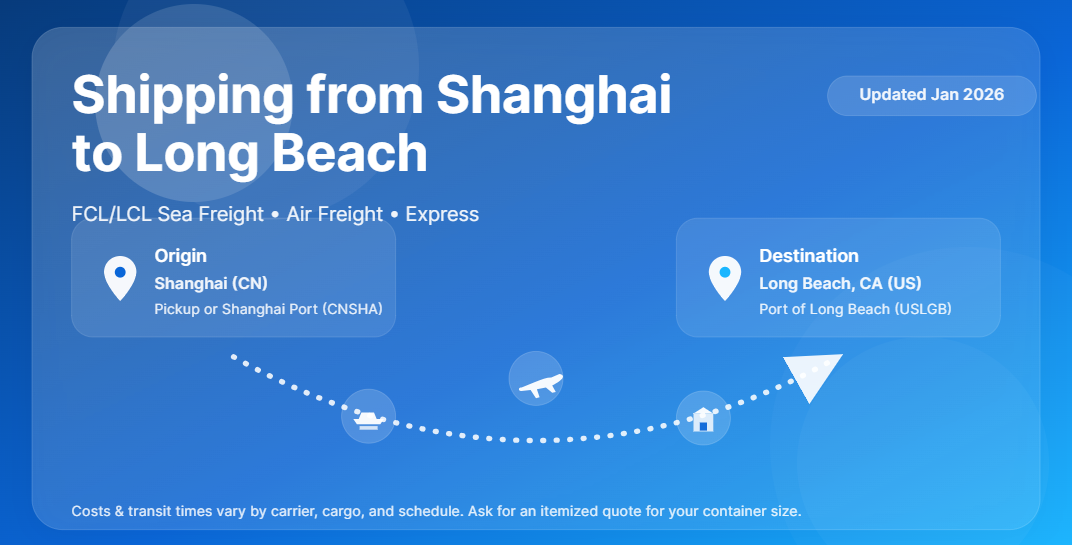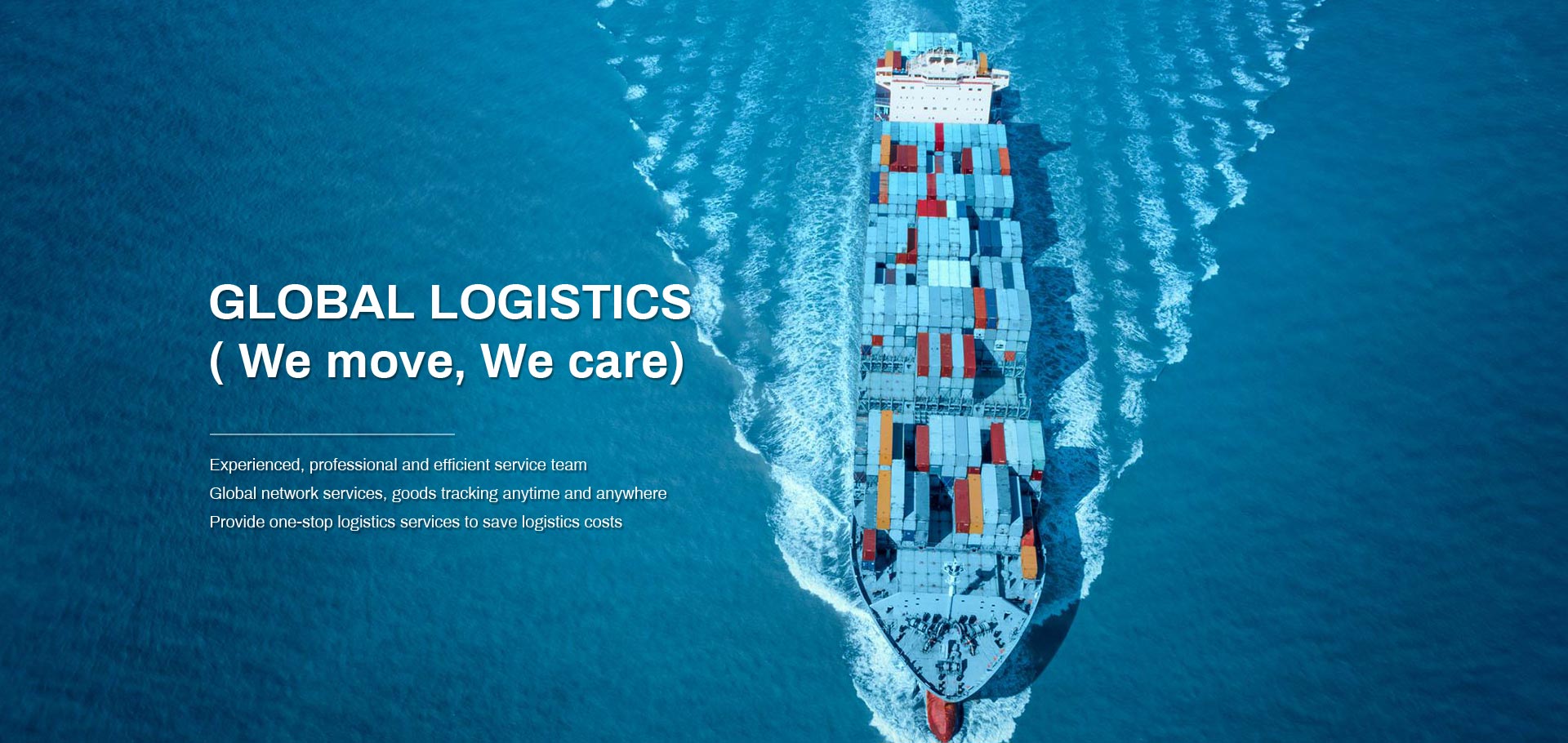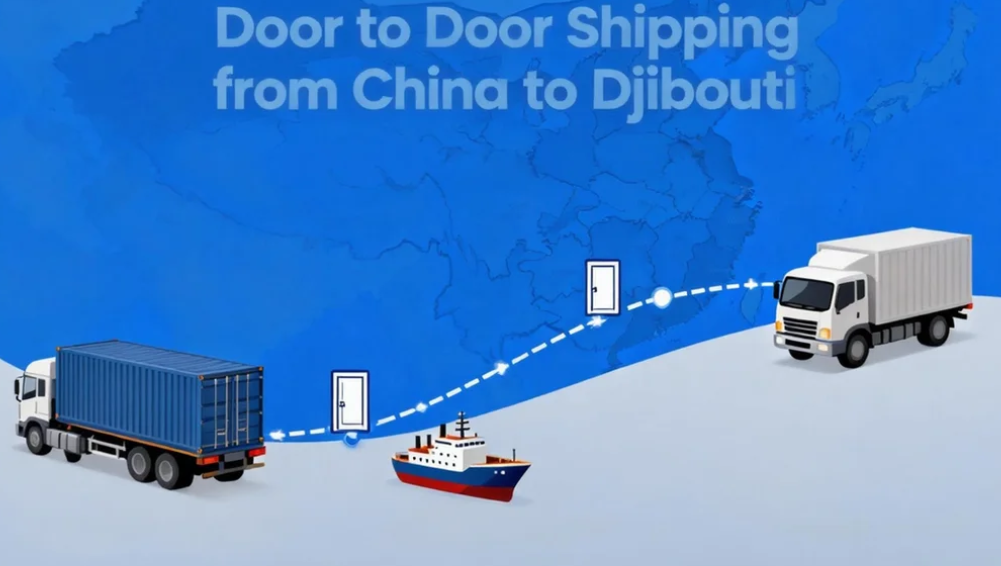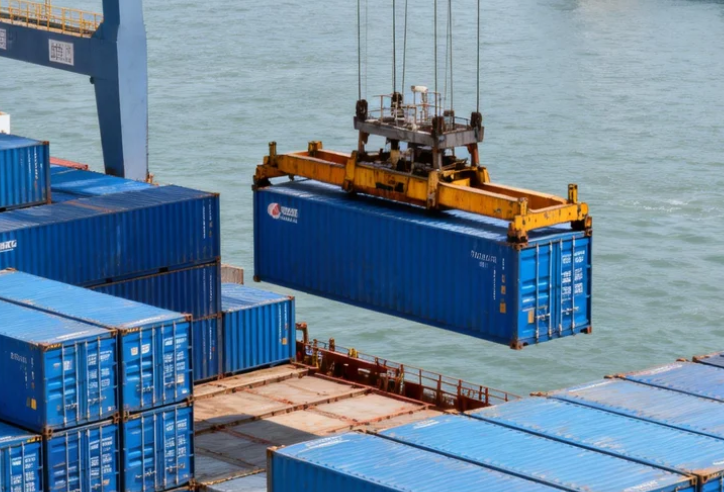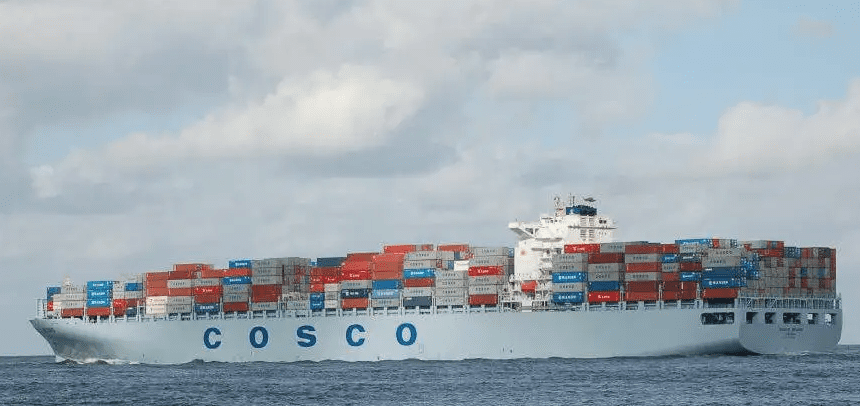Are you curious about the shipping rates from China to Indonesia and what factors influence them? In this comprehensive guide, we will delve into the key elements that affect freight costs, including shipping distance, container types, and additional fees. Furthermore, we’ll provide a current shipping rate table, tips on saving money, and advice on selecting the right logistics partner. By the end of this article, you’ll be equipped with the knowledge to navigate the complexities of international shipping, ensuring the best possible rates for your cargo.
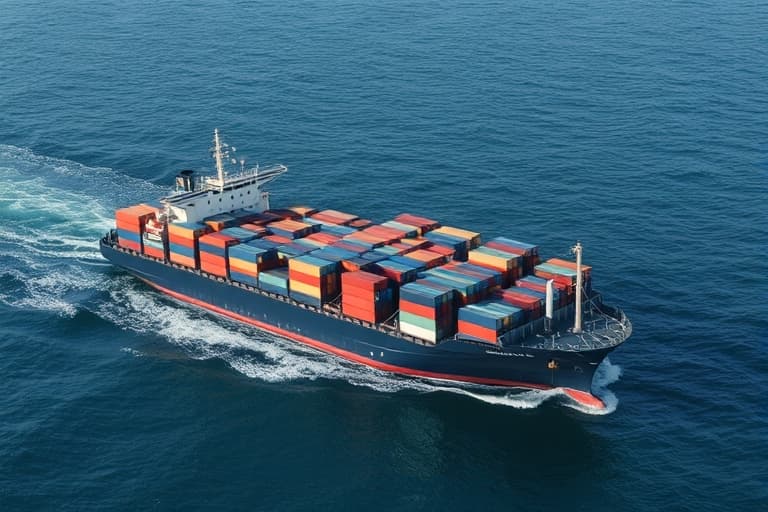
Key Factors Affecting Shipping Rates from China to Indonesia
Understanding Freight Rates and Pricing Structures
When shipping goods from China to Indonesia, understanding how shipping rates are calculated is essential for importers. Freight rates are primarily determined by factors such as the type of cargo, its weight and volume, the mode of transport (such as Ocean Freight or Air Freight), and the specific trade route.
There are two main shipping rate structures:
- FCL (Full Container Load): A fixed rate is charged for a full container, regardless of whether it is fully or partially loaded. For details on shipping strategies, see LCL vs FCL Shipping: How to Choose the Right Option for Small Cargo.
- LCL (Less than Container Load): Charges are based on the volume (CBM – Cubic Meter) or weight of the cargo when the shipment does not fill a whole container and is consolidated with others.
Additional surcharges might apply, such as bunker adjustment factor (BAF), currency adjustment factor (CAF), or peak season surcharge (PSS). These fees fluctuate based on global market trends and shipping line policies.
Impact of Shipping Distance and Route on Costs
The distance between Chinese ports (like Shanghai, Shenzhen, or Ningbo) and Indonesian ports (such as Jakarta, Surabaya, or Belawan) directly impacts freight rates. Longer routes require more fuel and time, leading to higher transportation costs.
Moreover, the chosen route influences costs:
- Direct shipping is often faster and more cost-efficient but may be less frequent.
- Transshipment routes (where cargo is transferred at an intermediate port) can reduce costs but may increase transit time and risk of delays.
For example, shipping from Shanghai to Jakarta is often more affordable and faster than from Tianjin to Surabaya, due to distance and established shipping lines. For additional tips on international container pricing, visit International Container Shipping Prices.
Influence of Container Type and Size on Freight Charges
The type and size of the shipping container play a crucial role in determining shipping rates:
- 20ft Container (TEU): Suitable for smaller shipments, offering a lower total cost but potentially higher cost per CBM.
- 40ft Container (FEU): Preferred for larger shipments, providing a lower cost per unit volume.
- Special containers (such as refrigerated or OOG – Out of Gauge containers) incur higher rates due to their technical requirements. Discover more about out of gauge cargo and its impact on logistics costs.
Selecting the appropriate container size based on your cargo volume can significantly optimize shipping costs. For oversized, perishable, or sensitive cargo, specialized containers must be considered, which come with additional surcharges.
Current Shipping Rate Table for China to Indonesia
Comparative Analysis of 20ft vs 40ft Container Shipping Rates
To provide a realistic overview, here are estimated shipping rates from key Chinese ports to major Indonesian ports as of Q2 2024. Actual rates fluctuate based on fuel prices, capacity, seasonality, and market demand. For the latest and most accurate rates, consult with a reputable freight forwarder like Dantful International Logistics.
| Origin Port (China) | Destination Port (Indonesia) | 20ft Container (USD) | 40ft Container (USD) | Estimated Transit Time (Days) |
|---|---|---|---|---|
| Shanghai | Jakarta | $900 – $1,100 | $1,300 – $1,600 | 9 – 12 |
| Shenzhen | Surabaya | $950 – $1,150 | $1,350 – $1,700 | 11 – 14 |
| Ningbo | Belawan | $1,000 – $1,200 | $1,400 – $1,800 | 12 – 15 |
| Qingdao | Semarang | $1,100 – $1,300 | $1,600 – $2,000 | 14 – 16 |
Note: Rates above are indicative and based on general cargo. Special requirements, such as OOG Freight or Refrigerated Containers, will incur extra charges. Data is sourced from recent market reports and shipping line quotations (e.g., Freightos Baltic Index, Sea-Intelligence).
Key Observations:
- 40ft containers offer better value for high-volume shipments.
- Major ports like Shanghai to Jakarta have the most competitive rates and frequent sailings.
- Smaller or less frequented routes usually come with a premium.
For importers interested in other regions, see reference rates for shipping rates from China to USA.
Seasonal Variations in Shipping Costs
Shipping rates from China to Indonesia are subject to seasonal fluctuations:
- Peak season: Typically from August to October (pre-holiday inventory buildup) and just before Chinese New Year (January/February), rates can surge by 20-50% due to high demand.
- Off-peak season: Rates may drop and space availability increases, usually after major holidays or during slower economic periods.
- Global events: Disruptions such as port congestion, pandemics, or geopolitical events can cause unpredictable spikes in shipping rates.
It is advisable to plan shipments in advance and consult with a reliable freight forwarder like Dantful International Logistics to secure the best available rates and avoid delays during high-demand periods.
By understanding these critical factors and current market rates, importers can make informed decisions and optimize their shipping strategies when importing goods from China to Indonesia. For tailored quotes or further consultation, contact Dantful International Logistics—your trusted one-stop logistics partner for global trade. For direct delivery needs, refer to door to door shipping from China to Indonesia.
Breakdown of Other Charges in Shipping from China to Indonesia
Common Additional Fees and Hidden Costs Explained
While understanding the basic shipping rates from China to Indonesia is essential, it is equally important to be aware of additional fees and hidden costs that may apply to your shipment. These charges can significantly affect your total logistics budget. Some of the most common additional charges include:
| Fee Type | Description | Typical Cost Range (USD) |
|---|---|---|
| Bill of Lading Fee | Issued by the carrier as proof of shipment. | $30 – $80 |
| Terminal Handling Charges (THC) | Covers costs of moving containers within the port terminals. | $95 – $150 per container |
| Port Security Fee | To ensure secure handling and storage at the port. | $10 – $25 per shipment |
| Documentation Fee | For processing shipping and customs paperwork. | $30 – $50 |
| ISPS (International Ship & Port Security) Fee | Security measures for international shipments. | $10 – $20 |
| Container Imbalance Surcharge | Applied when there is a surplus or deficit of containers at a given port. | $100 – $200 per container |
| Demurrage and Detention Fees | Charged if the container is not picked up or returned within the free period. | $50 – $150 per day |
Additional hidden costs may also arise due to:
- Emergency Bunker Surcharges (EBS) when fuel prices fluctuate.
- Peak Season Surcharge (PSS) during times of high demand.
- Customs Inspection Fees if your cargo is selected for examination.
Being aware of these costs allows for more accurate budgeting and avoids unpleasant surprises. If you’re interested in comparison, see container shipping costs from China to USA for additional fee structure insights.
Customs Duties and Taxes: What to Expect
When shipping goods from China to Indonesia, importers must comply with Indonesian Customs Regulations, which involve the payment of duties and taxes. The key charges include:
Import Duty: Calculated based on the HS Code, value of goods (CIF basis), and Indonesian Tariff Book. Duty rates typically range from 0% to 40%, depending on the product category. For most industrial goods, rates are between 5% and 15%.
Value Added Tax (VAT): Indonesia applies a VAT of 11% on imported goods, calculated based on the customs value plus import duty.
Income Tax (PPh Import): Generally set at 2.5% or 7.5%, depending on the importer’s tax registration status.
Example Calculation Table:
| Description | Calculation Basis | Example Value (USD) | Rate | Amount (USD) |
|---|---|---|---|---|
| Customs Value (CIF) | Invoice value+Freight+Insurance | $10,000 | $10,000 | |
| Import Duty | Based on HS Code | $10,000 | 10% | $1,000 |
| VAT (Value Added Tax) | (CIF+Import Duty) | $11,000 | 11% | $1,210 |
| Income Tax (PPh Import) | (CIF+Import Duty) | $11,000 | 2.5% | $275 |
Note: Duty rates and policies are subject to regular updates by Indonesian authorities. Please refer to the Indonesian Customs official website for the latest tariffs and regulations.
For information on similar procedures in other countries, check the import procedure from China to United States.
How to Save Money on Shipping from China to Indonesia
Strategies for Reducing Freight Costs
Controlling your shipping rates from China to Indonesia requires a strategic approach. Here are proven tactics importers can adopt:
- Book in Advance: Shipping rates tend to rise closer to the departure date, especially during peak seasons. Early booking secures lower rates.
- Negotiate with Freight Forwarders: Request quotes from multiple providers and leverage volume for better deals.
- Optimize Packing: Efficient packing reduces the number of containers or space required, directly lowering overall costs.
- Select the Right Shipping Mode: For urgent or high-value shipments, air freight is faster but more expensive. For bulk, less time-sensitive cargo, ocean freight is more cost-effective.
- Monitor Market Rates: Rates fluctuate based on fuel prices, seasonality, and global trade dynamics. Work with a forwarder who provides market insights and alerts.
Importance of Consolidation and Bulk Shipping
Consolidation is one of the most effective cost-saving strategies for small- and medium-sized importers. This process combines shipments from multiple shippers into a single container (also known as LCL—Less than Container Load), allowing you to benefit from shared costs. To learn more about this approach, see consolidated freight shipping.
Bulk shipping—booking a full container load (FCL)—is often more economical for larger shipments. This is because per-unit shipping costs decrease significantly with higher volume.
| Shipping Method | Suitable For | Cost Efficiency | Key Benefit |
|---|---|---|---|
| LCL (Consolidated) | Small shipments, varied cargo | Lower upfront cost, shared space | Pay only for space used |
| FCL (Bulk Shipping) | Large, homogenous cargo | Best for high volume, lower per unit cost | Exclusive use of container |
Dantful International Logistics specializes in both LCL consolidation and FCL bulk shipping solutions. Our extensive partner network ensures reliable, frequent consolidation schedules and cost-effective container bookings. We also offer transparent quotes, assisting you in comparing costs and making the best logistical decision.
Partnering with an experienced and reputable freight forwarder like Dantful International Logistics ensures you not only receive the best shipping rates from China to Indonesia but also avoid hidden costs and optimize your entire supply chain. Contact us today for a personalized quote and discover how our professional, cost-effective, and high-quality services can enhance your global trading experience.
Choosing the Appropriate Partner for Shipping
Criteria for Selecting a Reliable Freight Forwarder
Selecting the right freight forwarder is crucial when shipping goods from China to Indonesia. A reliable partner ensures smooth operations, cost-effectiveness, and minimizes potential shipping delays. Below are the key criteria to consider:
Industry Experience and Reputation
Choose a company with proven expertise in the China–Indonesia trade lane. An experienced forwarder understands complex shipping regulations, documentation, and local customs requirements. Check for positive reviews, industry certifications, and a solid track record. For guidance on how to evaluate and select, visit how to choose the right freight forwarder.Comprehensive Service Capabilities
Your freight forwarder should offer a full range of services beyond simple shipping—such as ocean freight, air freight, consolidated freight, breakbulk freight, warehouse solutions, customs clearance, insurance, Amazon FBA delivery, and door-to-door logistics.Transparent Pricing and Cost Breakdown
Look for transparent rate structures without hidden charges. The forwarder should provide clear quotes for various shipping methods (e.g., FCL/LCL, 20ft/40ft containers), as well as explain additional surcharges, customs duties, and taxes.Global Network and Local Expertise
A reliable logistics partner should have a global reach and local teams in both China and Indonesia. This network ensures seamless coordination and troubleshooting at every shipping stage.Customer Support and Responsiveness
Professional customer service is essential. The forwarder should offer multilingual support, fast response times, real-time shipment tracking, and proactive communication.Compliance and Security
Ensure the company adheres to international shipping standards, regulatory compliance, and offers cargo insurance for risk mitigation.
Benefits of Working with Experienced Shipping Agents
Collaborating with experienced shipping agents provides the following advantages:
| Benefit | Description |
|---|---|
| Reduced Risk | Experienced agents anticipate and resolve issues related to documentation, customs, or port handling, minimizing costly delays. |
| Optimized Costs | Through knowledge of trade routes, consolidation options, and bulk shipping, agents help secure competitive rates and reduce overall expenses. |
| Efficiency and Speed | Professionals expedite paperwork, book space quickly during peak seasons, and manage exceptions efficiently, ensuring timely delivery. |
| Customized Solutions | Seasoned agents tailor logistics strategies to your shipment type, volume, and urgency, whether for FCL, LCL, or special cargo. |
| Regulatory Guidance | Agents stay updated on the latest import/export regulations between China and Indonesia, ensuring full compliance. |
A trusted and knowledgeable agent becomes a valuable extension of your supply chain, allowing you to focus on your core business. For more on dedicated services between these countries, explore freight forwarder from China to Indonesia.
Why Choose Dantful International Logistics for Your Shipping Needs
Unique Advantages of Partnering with Dantful
Dantful International Logistics stands out as a highly professional, cost-effective, and high-quality one-stop international logistics service provider. Here’s why importers from China to Indonesia consistently choose Dantful:
| Dantful Advantage | Details |
|---|---|
| Comprehensive Service Portfolio | We offer ocean freight, air freight, rail freight, Amazon FBA, warehouse solutions, customs clearance, insurance, door-to-door, OOG freight, consolidated freight, and breakbulk freight—covering all logistics needs from China to Indonesia. |
| Competitive Shipping Rates | Our long-term contracts with major carriers and expert route optimization guarantee some of the most competitive shipping rates for both FCL and LCL between China and key Indonesian ports such as Jakarta, Surabaya, and Belawan. Maersk Market Update |
| Customized Logistics Solutions | We tailor our shipping strategies based on your cargo type, volume, and timeline requirements, ensuring optimal efficiency and cost control. |
| Advanced Tracking and Technology | Dantful provides real-time shipment tracking and automated updates, giving you full visibility throughout the shipping process. |
| Local Expertise with Global Reach | With offices and partners in both China and Indonesia, we ensure on-the-ground support and swift issue resolution. |
| Outstanding Customer Service | Our multilingual team is available 24/7 to handle your queries, provide logistics consultation, and support with documentation. |
| Reliable Compliance and Security | We prioritize regulatory compliance and offer comprehensive cargo insurance for your peace of mind. |
Customer Success Stories and Testimonials
Customer Testimonials:
“We’ve been importing electronics from Shenzhen to Jakarta for three years. Dantful’s expertise in customs and reliable schedules saved us thousands of dollars annually.”
— PT. Surya Tech, Indonesia
“Dantful’s consolidation services helped us cut shipping costs by 25%. Their team always responds swiftly and provides clear guidance for each shipment.”
— IndoTextile Importers
“We appreciate Dantful’s all-in-one logistics solutions, from warehousing in Guangzhou to door delivery in Surabaya. Their transparency and professionalism set them apart.”
— Harmony Home Goods
FAQs
Q1: What documents are required for shipping from China to Indonesia?
A: Standard documents include the Bill of Lading, Commercial Invoice, Packing List, Certificate of Origin, and any specific import permits or licenses required by Indonesian customs.
Q2: Can Dantful arrange for door-to-door delivery?
A: Yes, Dantful offers door-to-door logistics services from any city in China to your specified address in Indonesia, including customs clearance and inland transportation.
Q3: How can I reduce my shipping costs?
A: You can save by consolidating shipments, choosing the most suitable shipping mode (FCL vs. LCL), booking in advance, and working with an experienced forwarder like Dantful who can identify optimal routes and negotiate better rates.
Q4: How long does shipping from China to Indonesia typically take?
A: Ocean freight usually takes 7–14 days depending on the origin and destination ports. Air freight is much faster, typically 2–5 days. Door-to-door services may take a few days longer due to customs and last-mile delivery.

Young Chiu is a seasoned logistics expert with over 15 years of experience in international freight forwarding and supply chain management. As CEO of Dantful International Logistics, Young is dedicated to providing valuable insights and practical advice to businesses navigating the complexities of global shipping.

